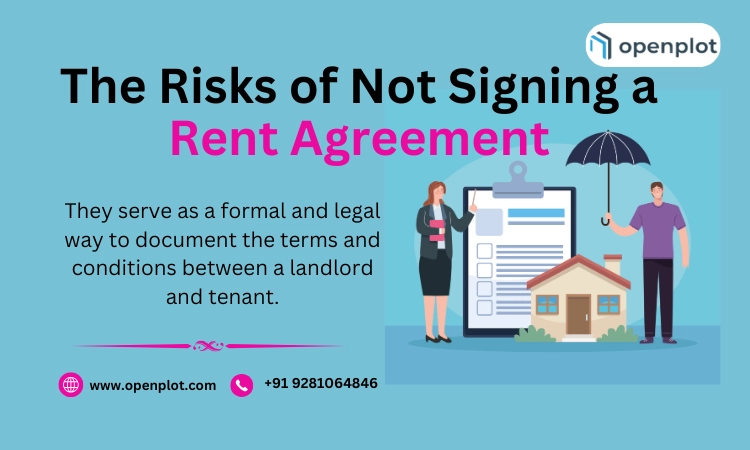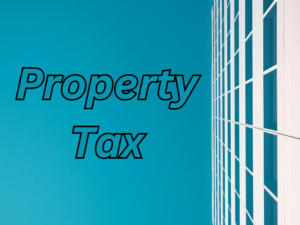Introduction
Rent agreements are crucial when it comes to renting a property. They serve as a formal and legal way to document the terms and conditions between a landlord and tenant. However, some tenants and landlords opt to forgo the paperwork and rent without a signed contract. While this might seem like an easy solution, it can lead to serious consequences. In this blog, we’ll explore the importance of rent agreement, and the risks of not signing a rent agreement.

Table of Contents
- What is a Rent Agreement?
- Understanding the Importance of a Rent Agreement
- Legal Protection for Both Parties
- Potential Risks of Not Signing a Rent Agreement
- Consequences for Tenants Breaking a Lease Agreement
- Non-Contractual Rent Affects Financial Stability
- Best Practices for Creating a Rent Agreement
- Frequently Asked Questions
What is a Rent Agreement?
A rent agreement is a legally binding contract between a landlord and a tenant. It outlines the terms and conditions under which the property is rented. The agreement includes key details such as the rental price, payment schedule, duration of the lease, and both parties’ rights and responsibilities. A written rent agreement provides clarity and ensures both parties are on the same page about their obligations.
Understanding the Importance of a Rent Agreement
A rent agreement is crucial because it serves as a legally binding contract that clearly outlines the rights and responsibilities of both the landlord and tenant. Protecting both parties from potential disputes by specifying details like rent amount, security deposit, tenancy duration, maintenance responsibilities, and termination clauses. Essentially acting as a vital piece of evidence in case of any legal disagreements regarding the rental property.
Key Points About the Importance of a Rent Agreement
- Clarity and Transparency: It provides a clear understanding of the terms of the tenancy. Leaving no room for misunderstandings or ambiguity about expectations.
- Legal Protection: In case of conflicts regarding rent payments, property damage, or eviction, the agreement serves as legal documentation to support claims in court.
- Security for Landlord: It ensures the landlord receives timely rent payments and has a process for addressing tenant violations or non-compliance with the agreement.
- Security for Tenant: The agreement protects the tenant from arbitrary rent increases and unreasonable eviction attempts and clarifies their rights regarding property usage and maintenance.
- Essential Information: A rent agreement typically includes details like the property address, monthly rent, security deposit amount, tenancy duration, permitted occupants, rules regarding pets, and procedures for repairs and maintenance.
Legal Protection for Both Parties
A written rent agreement ensures that both the landlord and the tenant have legal rights and responsibilities clearly defined. In cases of disputes over rent, security deposits, maintenance, or eviction, this document can serve as evidence in court or mediation.
For tenants, a lease protects them from sudden evictions or unjustified rent increases. For landlords, it ensures they can legally recover unpaid rent or take action against property damage.
Legal Protection for Both Parties
A written rent agreement ensures that both the landlord and the tenant have legal rights and responsibilities clearly defined. In case of disputes over rent, security deposits, maintenance, or eviction, this document can serve as evidence in court or mediation.
For tenants, a lease protects them from sudden evictions or unjustified rent increases. For landlords, it ensures they can legally recover unpaid rent or take action against property damage.
Potential Risks of Not Signing a Rent Agreement
Not signing a rent agreement can expose both landlords and tenants to significant risks. Including the inability to enforce specific terms regarding rent increases, eviction procedures, property damage, and potential legal disputes. Making it difficult to resolve issues if disagreements arise between the parties involved.
Key Risks for Tenants Without a Rent Agreement
- Unilateral rent hikes: Landlords may arbitrarily increase rent without any legal obligation to provide prior notice or justification, as the agreement outlines the rent terms.
- Sudden eviction with minimal notice: Landlords may evict tenants with short notice or even without proper legal procedures due to the lack of a defined tenancy period.
- Difficulty claiming damages: If a tenant experiences property damage, proving the landlord’s responsibility to repair it can be challenging without a documented agreement outlining the property’s condition upon move-in.
- Limited legal recourse: In case of disputes regarding repairs, security deposit, or other tenancy issues, a tenant may struggle to defend their rights in court without a written agreement.
Key Risks for Landlords Without a Rent Agreement
- Difficulties recovering unpaid rent: If a tenant defaults on rent payments, enforcing collection through legal means can be difficult without a signed agreement outlining the payment terms.
- Challenges in eviction proceedings: Evicting a tenant who is not paying rent may require more complex legal processes without a clear lease agreement.
- Potential for property damage liability: Without a defined responsibility for property upkeep, landlords may struggle to hold tenants accountable for damages to the property.
- Uncertain tenancy duration: The landlord may not have a clear understanding of how long the tenant intends to stay in the property, making it difficult to plan for future occupancy.
Consequences for Tenants Breaking a Lease Agreement
Breaking a lease agreement in India can result in eviction, financial penalties, and damage to your credit. You may also have trouble finding a new place to live.
Consequences of breaking a lease
- Eviction: You may be evicted if you break the terms of your lease.
- Legal action: You may be subject to legal action by the landlord.
- Financial penalties: You may be liable for financial penalties.
- Damaged credit: You may have your credit score damaged.
- Difficulty finding future housing: You may have trouble finding a new place to live.
Tenant Rights in India
- The right to a written agreement
- The right to repairs and maintenance
- The right to reimbursement for repairs
- The right to privacy
- The right to be notified if the property is sold
- The right to peaceful enjoyment of your home
Rent Control Act
The Rent Control Act regulates the rules of letting out a property. It ensures that neither the landlords nor the tenants’ rights are exploited by the other.
Non-Contractual Rent Affects Financial Stability
When landlords face an inability to evict problematic tenants, challenges in enforcing property rules, and financial losses from unpaid rent. It can lead to significant consequences. Including reduced rental income.
Legal costs, property damage, difficulty finding new tenants, potential stress and frustration, and in extreme cases, financial hardship or even the need to sell the property. All stemming from the lack of control over their rental property and the inability to effectively manage disruptive or non-paying tenants.
Breakdown of Consequences
Financial Losses
- Lost Rent: The most direct consequence is the loss of income from unpaid rent, potentially putting a strain on the landlord’s budget.
- Legal Costs: Eviction proceedings can be lengthy and expensive, involving court fees and attorney costs, further reducing the landlord’s profit margin.
- Property Damage: Problematic tenants may cause damage to the property, requiring additional repair costs.
Operational Challenges
- Difficulty Managing Tenants: Without the ability to enforce property rules, landlords may struggle to maintain order and address tenant complaints.
- Tenant Turnover: A reputation for not managing tenants effectively can make it hard to attract new, responsible tenants.
- Legal Disputes: Frequent disagreements with tenants can lead to legal disputes, further impacting the landlord’s time and finances.
Psychological Impact
- Stress and Frustration: Dealing with problematic tenants can be emotionally draining and lead to stress for landlords.
- Loss of Security: The uncertainty of whether rent will be paid or if property rules will be followed can create a sense of insecurity for landlords.
Best Practices for Creating a Rent Agreement
A strong rent agreement should cover this.
- Tenant & Landlord Details: Full names and contact information
- Rent Amount & Payment Terms: Due date, late fees, and accepted payment methods
- Security Deposit: Amount, deductions, and refund policy
- Lease Duration: Fixed-term or month-to-month rental period
- Maintenance Responsibilities: Who handles repairs and upkeep
- Rules & Restrictions: Pets, guests, noise policies, and subletting rules
- Termination & Eviction Clauses: Notice period and grounds for eviction
Importance of Clear Communication
- Ensure both parties fully understand the terms before signing.
- Discuss expectations regarding rent payments, maintenance, and property use upfront.
- Keep a copy of the signed agreement for future reference.
Seeking Legal Advice
- Consult a real estate attorney to ensure the agreement complies with local rental laws.
- Use state-approved lease templates to avoid legal loopholes.
- Verify that all clauses protect both landlord and tenant fairly and legally.
Conclusion
A rent agreement is a crucial legal document that protects both parties by clearly defining rights, responsibilities, and expectations. There are risks of not signing a rent agreement, so without one, both landlords and tenants are at risk of uncertainty and financial hardship. To ensure a smooth rental experience, always draft and sign a well-structured lease before moving in or renting out a property.
More Information
Stay updated on the latest developments in the real estate industry by following the openplot information.
Our platform offers valuable insights and updates, along with informative articles and market reports. Openplot.com helps find or sell a home, which is a significant milestone.
Frequently Asked Questions
Q. Is a verbal rental agreement legally binding?
A. In some cases, verbal agreements are legally recognized, but they are hard to prove in court and do not offer strong protection compared to a written lease.
Q. What should a rent agreement include?
A. It should outline the rent amount, payment terms, lease duration, security deposit, maintenance responsibilities, tenant rules, and termination policies.
Q. Can a landlord evict a tenant without a written agreement?
A. Eviction laws vary by location, but without a formal lease, landlords might struggle to enforce eviction legally or require a longer process.
Q. What happens if I don’t sign a rent agreement?
A. Tenants may face sudden rent increases or eviction, while landlords risk non-payment, property misuse, and legal complications.
Q. How can I create a rent agreement?
A. You can use legal templates, consult a lawyer, or draft one based on local rental laws to ensure fairness and legality.














